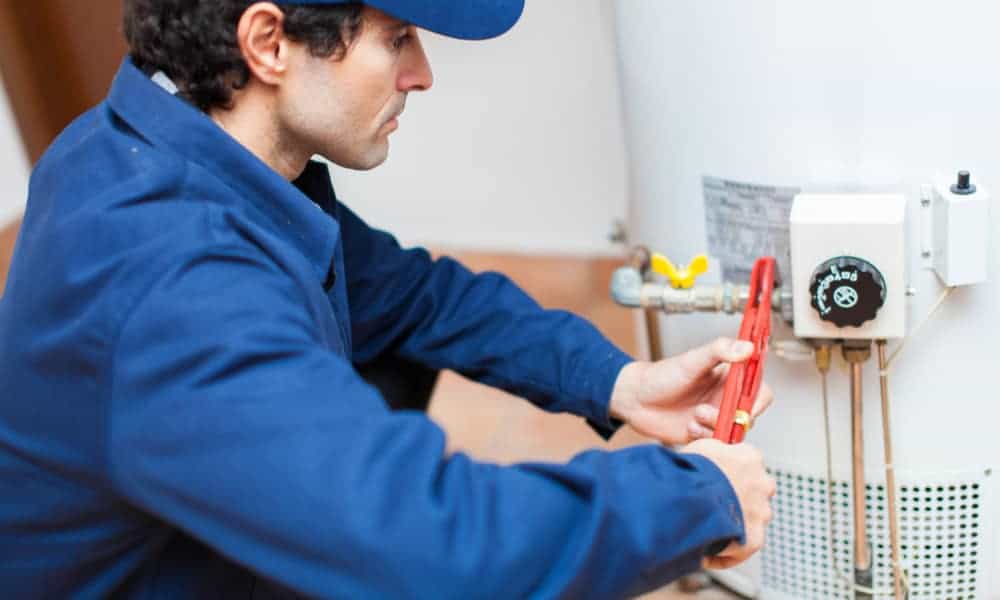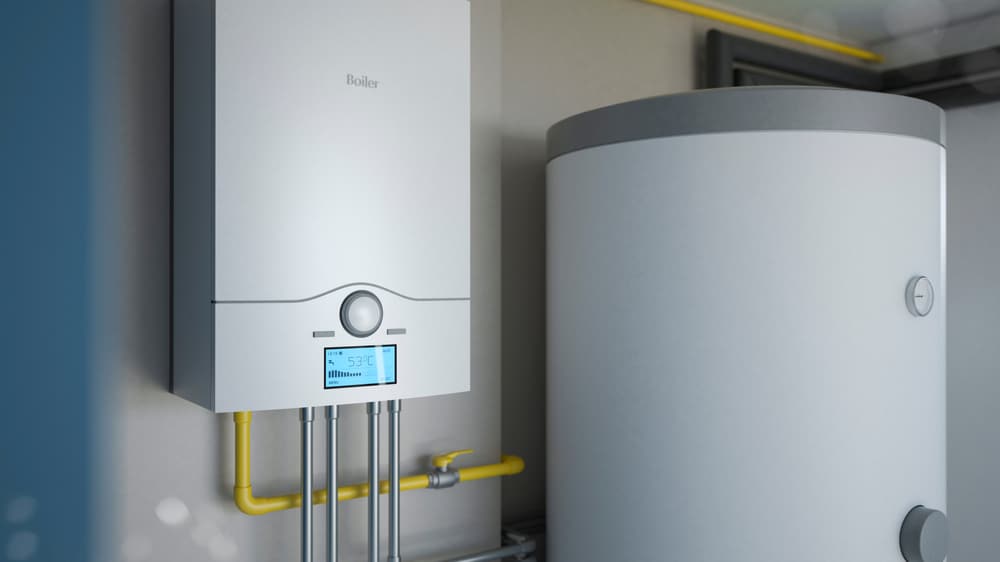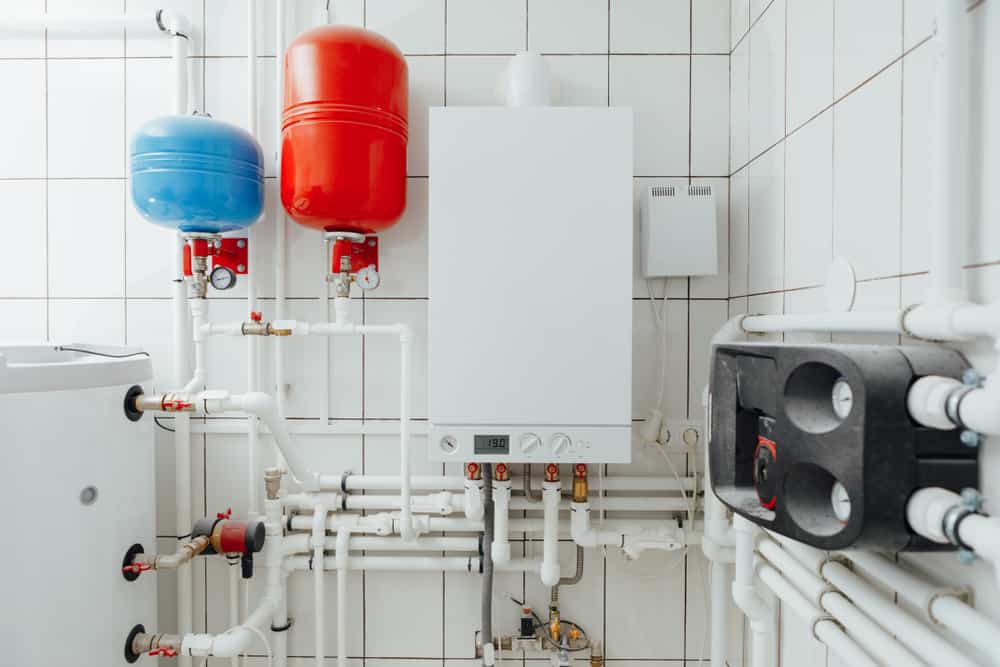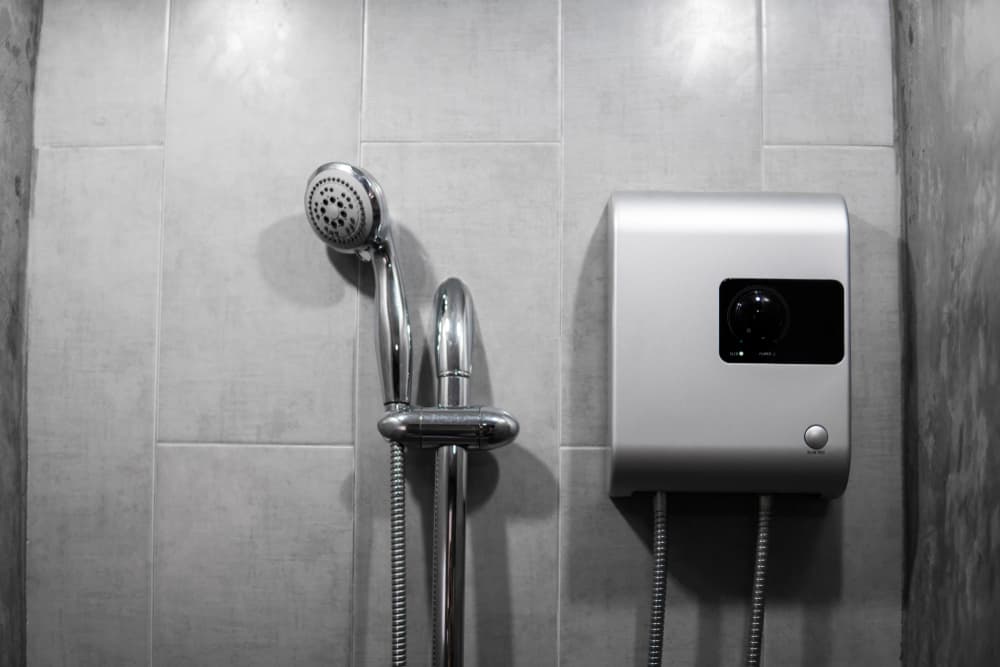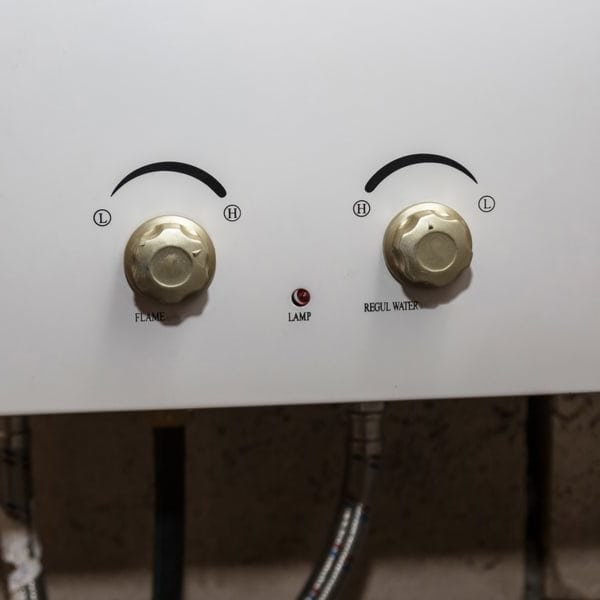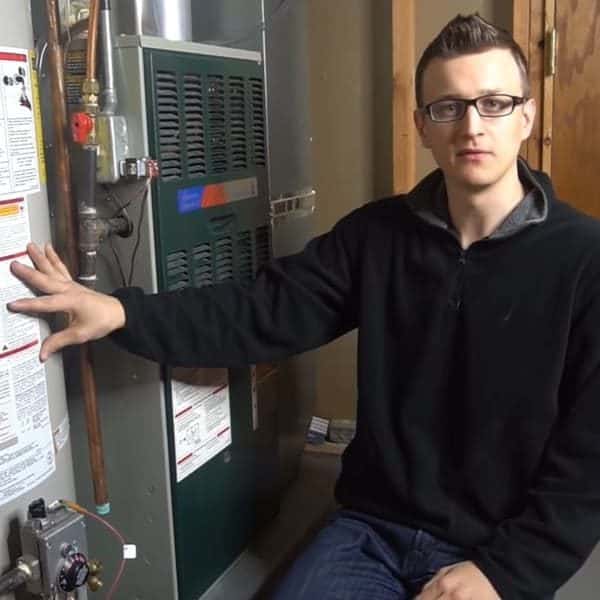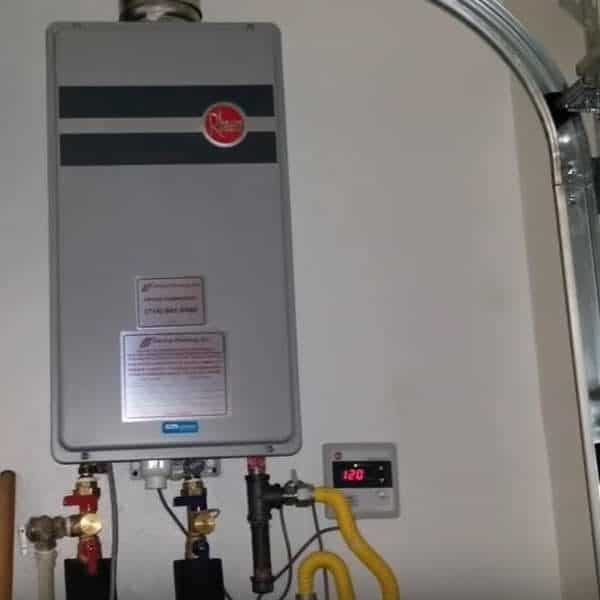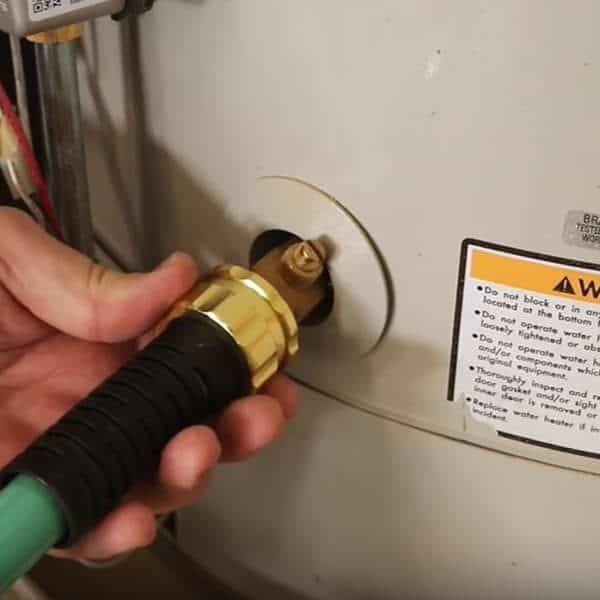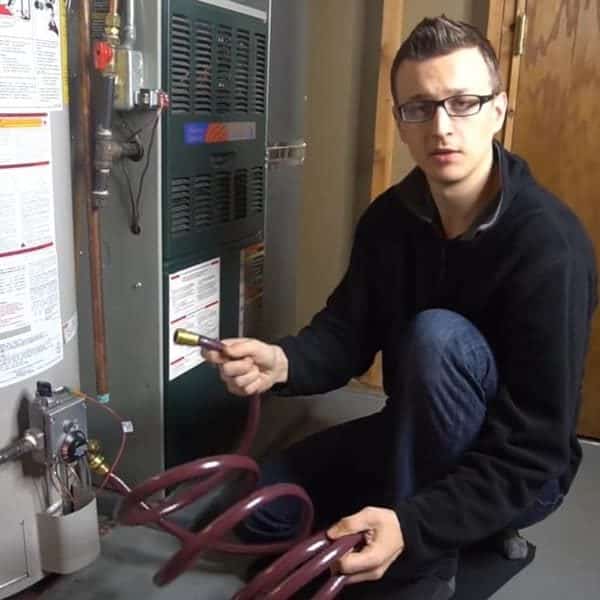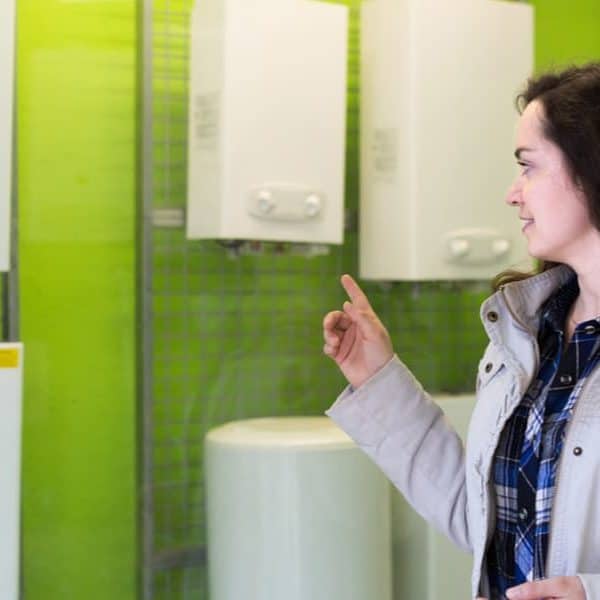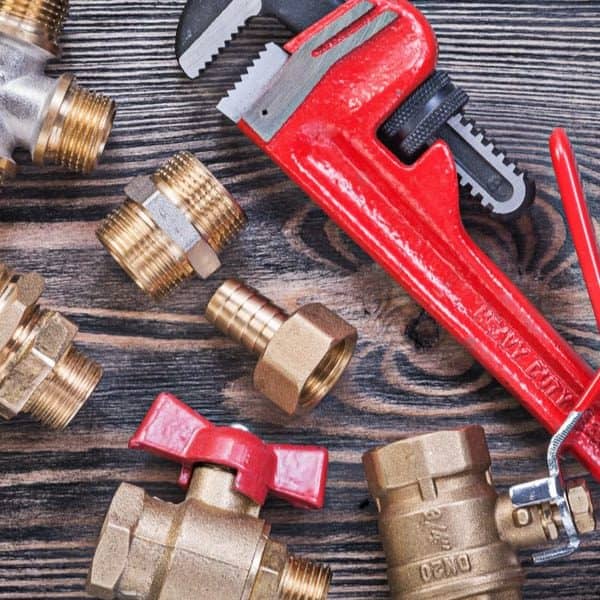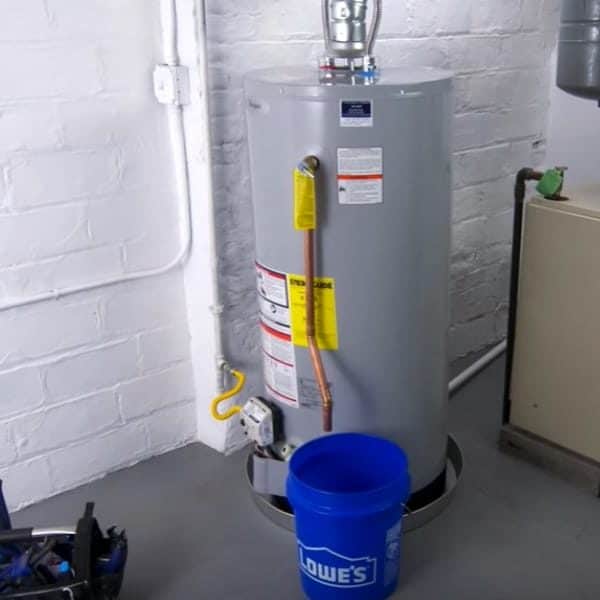It’s something all of us have experienced at least once in our lives – you wake up in the morning looking forward to a hot, invigorating bath only to find that when you open the hot water faucet, the water is as cold as ice.
It might be a familiar experience, but it’s certainly not an enjoyable one, so to help you understand why it happens – and how you can resolve the problem – in this post, we discuss the issue of no hot water in the house along with its causes and fixes.
Why My Hot Water is Not Working?
Which type of water heater do you have?
Before we talk about troubleshooting your water heater to find out why you have no hot water, first, we need to say a few words about the different types of heaters that exist.
This is because there are several types that are commonly used to heat water in homes, and the type you have will affect where you need to look to find the problem.
Broadly speaking, there are three main types of water heater that are most commonly used. Of course, beyond these three, several others also exist, but in a residential setting, it is most likely that yours will fall into one of these three categories. They are:
- Traditional gas heater with tank
- Electric heater with tank
- Tankless on-demand heater (either gas or electric)
If you suddenly find that you have no hot water, the first thing to do is to establish which type of heater you have. This will then allow you to methodically troubleshoot why the heater is no longer providing hot water.
Now let’s look at each type in turn.
No Hot Water in House with a Traditional Tank gas heater
The traditional type of water heater uses gas to heat water that is stored in a tank until it is needed.
When you take a shower or use the hot water for anything else like washing up in the kitchen sink, it is taken from the supply of hot water in the tank, after which the tank needs to refill and the water needs to be reheated.
If you have this kind of heater and you unexpectedly find you have no hot water, work through the following steps in this order to establish the reason. If you still can’t work out why you don’t have hot water, you may need to call out a professional to take a look.
1. Has someone used all the hot water?
One of the most common reasons for not having hot water is simply that the person before you has used it all up. If you have a traditional tank heater and the hot water has all been used, you need to wait a while (usually around half an hour) for more water to heat up.
This is not a problem in itself, it’s just an unfortunate fact. However, if it happens often, it could be an indication that the tank in your home is too small for the number of people using it, and it may be time to think about upgrading to a larger one.
2. Is the thermostat set correctly?
The next thing to check is if the thermostat is set correctly. The thermostat is what controls the temperature of the water, and if someone has unintentionally turned it down, the water won’t reach the desired temperature.
The ideal temperature for the water is 122-140°F, so if the thermostat is not set correctly, turn it up, wait half an hour and then try the water again. If it is now hot, you have already solved the problem.
3. Has the pilot light gone out?
In more old-fashioned water heaters, the pilot light remains on at all times, ready to ignite fully whenever it becomes necessary to heat the water in the tank – and many of these old-style heaters are still in use.
This means if the pilot has blown out, without the burner, the water won’t be able to heat up and will just go cold.
To check, open the panel and take a look inside to see if the pilot burner has gone out – and if it has, you just need to relight it, following the instructions that should be attached to the side of your heater. This may mean pressing a button or lighting it manually with a long lighter.
4. Is there a problem with the thermocouple?
The thermocouple is the device that cuts the flow of gas if the pilot light gets blown out. This is important, since if the pilot light blows out but the gas continues to flow, it would eventually fill the room, creating a serious risk of explosion.
However, when the thermocouple goes wrong, it can cut the supply of gas, even when it shouldn’t.
Check that the copper tube of the thermocouple sits in the flame – if not, you just need to adjust it so that it does.
It’s also possible that the thermocouple is broken, in which case you need to fit a new one. They can be picked up at any hardware store and are cheap to buy and easy to install.
5. Is there a problem with the ignitor?
In more modern heaters, the pilot light doesn’t burn constantly. Rather, it is lit by an ignitor when the water needs to be heated.
However, if this part breaks, the pilot light won’t be lit when heat is required, and so the water will remain cold.
If you have this kind of system, check to see if the ignitor is functioning by pressing the ignition knob. If nothing happens, you should buy a new one to replace it.
6. Is there a problem with the gas-to-air ratio?
If the pilot light is burning but you notice that it’s a yellow-orange color, it could indicate that the mixture of air and gas is wrong.
Pilot lights should burn blue, so if yours is yellow, you’ll need to call somebody out to check it.
Note that a yellow flame can also indicate the possible presence of carbon monoxide, a poisonous gas that can kill.
Open all windows, turn the gas off and pay attention to any symptoms of carbon monoxide poisoning that may arise, which can include dizziness, nausea and fainting.
7. Is there a problem with the gas supply?
If the problem doesn’t lie with the pilot light or the ignitor, the issue could be due to your gas supply.
The first thing to check is if there are any kinks or bends in your gas line – the problem could be as simple as a bend in the pipe preventing the gas from reaching the heater. Next, also check the gas valve – and make sure the gas is turned on!
If you can’t find any reason why gas shouldn’t be reaching your heater, give your gas company a call to see if there is any work scheduled for your area because your lack of gas could be down to the gas company switching it off for your whole neighborhood.
At the same time, check to see if your bills have all been paid and that you haven’t been cut off because you owe the gas company money!
Once you’ve eliminated all these possibilities, you can move on to the next step.
8. Is there a gas leak?
Natural gas is colorless and odorless, but a gas leak can be dangerous if undetected, so gas companies now add something called mercaptan to it to give it a distinctive sulfur smell.
If you smell the unpleasant odor of rotten egg, it means there could be a gas leak, in which case, cold water is the least of your worries.
If you suspect a gas leak, you should immediately turn off the gas supply, open any windows, head outside and call the gas company to come out and check it.
9. Is there a water leak?
If there’s no gas leak and you can’t smell rotten eggs, check the water tank for leaks. If it’s leaking, the water won’t have chance to heat up, which could explain the cold water issue.
If the leak is coming from the drain valve, the pipe connections or the cold water valve, it’s possible that you can have someone repair your heater – but if it’s coming from elsewhere, you may need to buy a new one.
In any case, you should call out a professional plumber for their evaluation.
10. Is corrosion taking place inside the tank?
Older tanks may start to corrode, and the giveaway is dirty-colored water that may have a metallic taste or smell.
Check to see if the inside of the tank is corroding – and if it is, you may need to think about replacing it.
11. Is there a mineral buildup inside the tank?
Sometimes mineral buildups can be to blame for a heater not functioning correctly. Check inside to see if a mineral or sediment buildup is causing the problem, and if so, attempt to clean it to resolve the issue.
No Hot Water in House with a Electric tank heater
Another type of hot water heater uses electricity rather than gas to heat the water in the tank. This method is more commonly found in smaller models since using electricity to heat water is more expensive that using gas.
This type of heater can suffer from several of the same issues as a gas heater, and these should be checked in the same way. They include the following:
- Has someone used all the hot water?
- Is the thermostat set high enough?
- Is there a water leak?
In addition, here are some other things to check if you have an electric water heater:
12. Has the circuit breaker been tripped?
It is possible that the circuit breaker has been tripped and your heater is no longer receiving current.
To check, go to the electrical circuit breaker box and see if any of the switches have been tripped. If one has, push it back to the “on” position and see if the water is now heating.
Note that if your panel is old, some switches may be damaged and may not remain in the correct position, even if the circuit hasn’t been tripped. If this is the case, it might be worth having the panel replaced.
13. Is your temperature cutoff switch defective?
The high temperature cutoff switch is designed to prevent the system from overheating, and if it is defective, it won’t allow the water to heat – much like a circuit breaker.
First, check the cutoff switch to see if it has been flipped to “off”, and if it has, flip it back to “on”.
If this isn’t the problem, the cause could be that the switch itself is broken, in which case, it will need to be replaced.
14. Are the heating elements faulty?
Another issue could be with the heating elements that are responsible for heating the water.
Especially with heaters that are reaching the end of their lifespan, the problem can be that the heating elements no longer work correctly – in which case, it could be time to replace the whole heater.
15. Try turning it off and on again
If you have checked everything and the heater still doesn’t function correctly, you can simply try turning it off, leaving it for a minute and then turning it back on again.
Turning the system off and on acts like a reset button, after which it will start heating water again as before.
If this doesn’t work, you should consider calling out a professional electrician to help.
No Hot Water in House with a Tankless on-demand systems
Tankless systems can run on either gas or electricity, and as such, they can suffer from some of the same problems as gas water heaters or electric water heaters with tanks.
If you have a gas-powered one, you should check the gas supply, the pilot ignitor and other relevant features – although since there is no tank, everything related to that part can be ignored.
If you have an electric one, you need to check elements like the circuit breakers.
However, there is one particular factor to bear in mind when it comes to on-demand heating systems, and that’s the temperature outside.
On-demand systems work by heating the water as it is needed, and in the summer, the water coming from outside may be considerably warmer than in the winter – which means you have to adjust the settings for the colder months.
Settings that give you hot water in summer may not be high enough to heat water in the winter, so by simply turning the heat setting up, you may find the water in your shower instantly becomes much hotter.
If none of this works, it’s probably time to call out an expert electrician.
No Hot Water in House FAQ
Here are some common questions concerning water heaters and why they aren’t producing hot water.
How often do you need to replace a water heater?
Like any other household appliance, water heaters need to be changed from time to time, but how often you need to change them depends largely on the type.
Most traditional hot water tank heaters need to be replaced every 10-15 years, so when a heater is coming to the end of its life, you should consider changing it ahead of time before it breaks down completely, leaving you without hot water unexpectedly.
On-demand systems perform better in this respect and don’t usually need to be replaced more often than every 20 years.
Which is the best type?
The answer to this question depends on several factors, including how many people there are in your household as well as where you live.
If you have a larger family, a traditional gas heater with a large tank is probably the best option. It will heat water efficiently, and there will be plenty available for everyone to take their shower when they need to.
However, if the whole family tries to take a shower at around the same time, some people may still find all the water has been used up.
For people living alone, an electric tank version may work well since you won’t need to heat as much water. Using electricity is a more ecological option than using natural gas to heat water – but for the moment, it’s also more expensive.
On-demand water heaters are a convenient option since they don’t waste energy heating water when it isn’t required. They are also able to provide enough hot water for everyone whenever they need it, so nobody will ever need to take a cold shower.
However, in cold conditions, they may struggle to heat water that’s not much above freezing, so it depends on the region where you live.
Can the weather affect tank heaters?
Weather can also affect tank heaters, so cold weather may be a reason for your problem of having no hot water.
Sometimes, when temperatures drop overnight due to winter storms and the boiler sits unused, the temperature of the water in the tank may also drop.
To rectify this, turn the thermostat up to maximum and let it heat the water for half an hour. After this, you should be able to take a hot shower.
You can then turn the thermostat control knob down again, but it’s better to leave it a little above the usual setting until the cold weather passes.
Many possible reasons but often easy to find
As you can see, there are many reasons why your water heater might stop giving you hot water, but if you work through the possibilities in a logical, methodical manner, it’s usually not too difficult to find what’s wrong.
The problem may depend on the type of heater you have, but taking a shower with cold water always feels the same, and few people enjoy it. However, with the info in our guide, at least you now know where to start looking for the root of your hot water problems.
